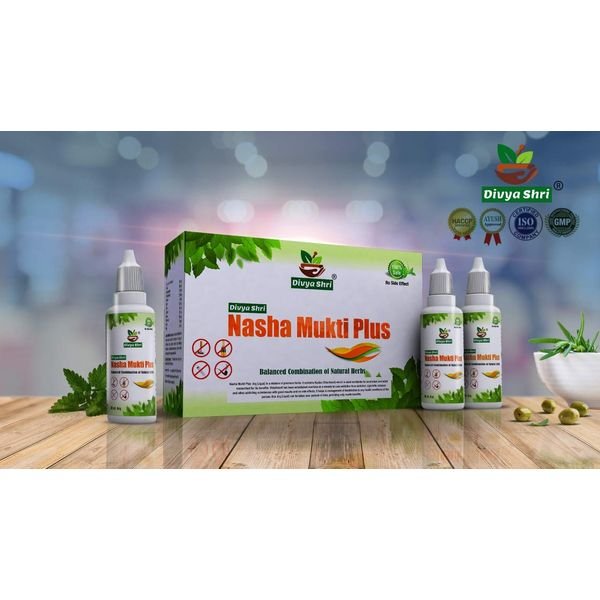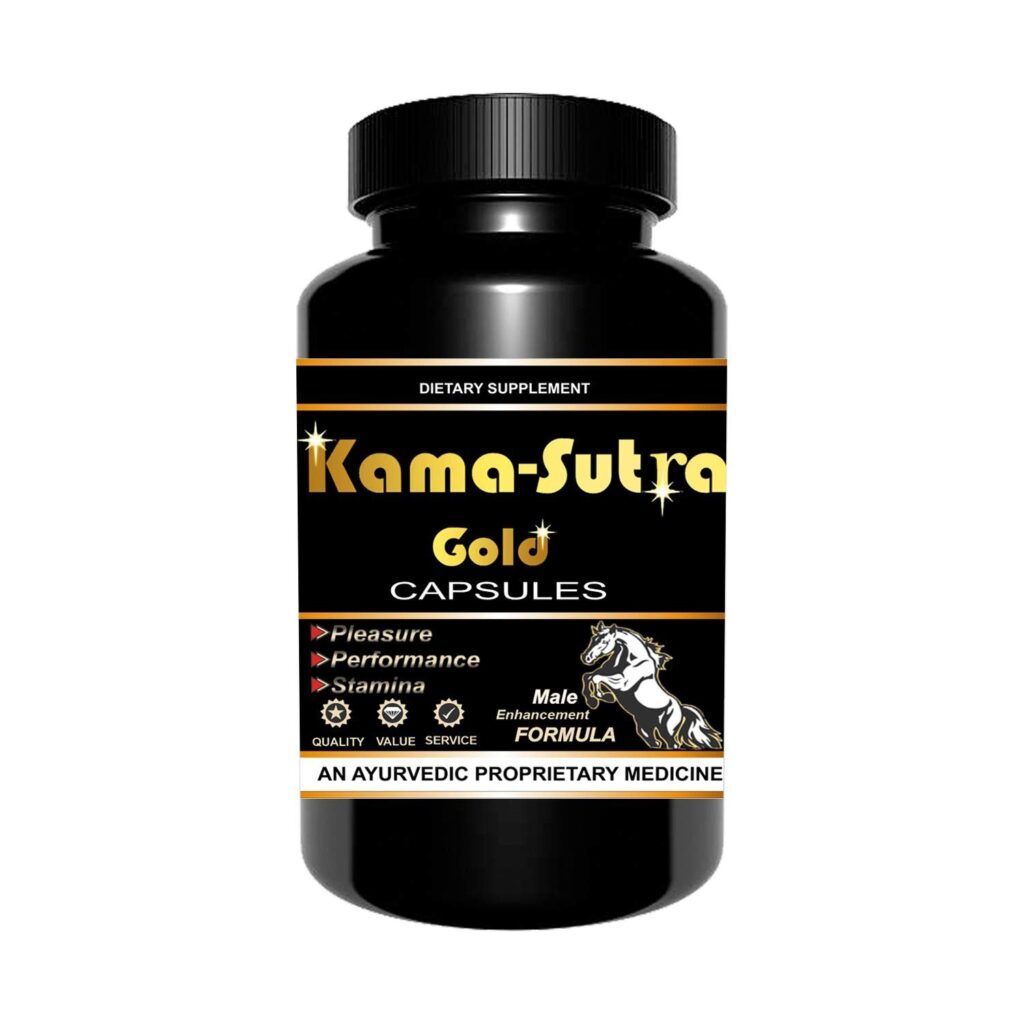Amoebiasis is a common intestinal infection caused by the parasite Entamoeba histolytica. It is characterized by symptoms such as diarrhea, abdominal pain, and fever. Traditional treatment options for amoebiasis have certain limitations, leading to the need for alternative herbal remedies. Baidyanath Amoebica Tablet is an effective herbal remedy for amoebiasis, formulated with natural ingredients. It works by targeting the parasite and reducing the symptoms of the infection. In this article, we will explore the usage, dosage, side effects, and safety profile of Baidyanath Amoebica Tablet, as well as compare it with other herbal remedies for amoebiasis. Here are the key takeaways from this article:
Key Takeaways
- Amoebiasis is a common intestinal infection caused by the parasite Entamoeba histolytica.
- Baidyanath Amoebica Tablet is an effective herbal remedy for amoebiasis.
- It is formulated with natural ingredients and works by targeting the parasite.
- The recommended dosage and duration of treatment should be followed.
- Baidyanath Amoebica Tablet has a good safety profile with minimal side effects.
What is Amoebiasis?
Causes of Amoebiasis
Amoebiasis is caused by the protozoan parasite Entamoeba histolytica. It is primarily transmitted through the ingestion of contaminated food or water. Poor sanitation and hygiene practices contribute to the spread of the infection. The parasite can also be transmitted through direct contact with fecal matter, such as during anal-oral sexual practices. Traveling to areas with poor sanitation and crowded living conditions increases the risk of contracting amoebiasis.
- Contaminated food and water
- Poor sanitation and hygiene
- Direct contact with fecal matter
- Traveling to areas with poor sanitation and crowded living conditions
Tip: To reduce the risk of amoebiasis, it is important to practice good hygiene, such as washing hands thoroughly with soap and clean water before eating or preparing food, and avoiding consumption of untreated water or uncooked food in high-risk areas.
Symptoms of Amoebiasis
Amoebiasis can cause a range of symptoms, which can vary from mild to severe. Abdominal pain is a common symptom experienced by individuals with amoebiasis. Other symptoms may include diarrhea, bloody stools, fatigue, and weight loss. In some cases, individuals may also experience fever, nausea, and vomiting. It is important to note that not everyone infected with the amoeba will develop symptoms.
If you suspect you have amoebiasis, it is important to seek medical attention for proper diagnosis and treatment. Your healthcare provider may perform a stool test to confirm the presence of the amoeba. Early detection and treatment can help prevent complications and ensure a faster recovery.
Here are some common symptoms of amoebiasis:
- Abdominal pain
- Diarrhea
- Bloody stools
- Fatigue
- Weight loss
If you experience any of these symptoms, it is recommended to consult a healthcare professional for further evaluation and guidance.
Diagnosis of Amoebiasis
Diagnosing amoebiasis can be challenging as the symptoms can be similar to other gastrointestinal conditions. However, there are several methods that healthcare professionals use to confirm the presence of amoebiasis:
-
Stool examination: This is the most common method used to diagnose amoebiasis. A stool sample is collected and examined under a microscope to look for the presence of the amoeba.
-
Serology tests: Blood tests can be done to detect antibodies produced in response to the amoeba. These tests can be helpful in cases where stool examination is inconclusive.
-
Imaging tests: In some cases, imaging tests like ultrasound or CT scan may be done to check for any complications or damage to the intestines.
-
Biopsy: In rare cases, a tissue sample may be taken from the intestine for further analysis.
It is important to consult a healthcare professional for an accurate diagnosis and appropriate treatment.
Complications of Amoebiasis
Amoebiasis can lead to several complications that can be severe and life-threatening if left untreated. Some of the complications associated with amoebiasis include toxic megacolon and amoebic liver abscess. Toxic megacolon is a condition where the colon becomes dilated and paralyzed, leading to a risk of rupture. Amoebic liver abscess is a collection of pus in the liver caused by the invasion of amoebic parasites. If not treated promptly, these complications can result in serious health consequences.
Traditional Treatment for Amoebiasis
Limitations of Traditional Treatment
Traditional treatment methods for amoebiasis have several limitations that can hinder effective management of the condition. One of the main limitations is the reliance on synthetic drugs that may have adverse side effects on the body. These drugs often target the amoebas directly, but they may also harm healthy cells in the process.
Another limitation is the potential for drug resistance to develop over time. Amoebas can adapt and become resistant to certain medications, making them less effective in treating the infection. This can lead to prolonged treatment periods and increased risk of complications.
Additionally, traditional treatment methods may not address the underlying causes of amoebiasis. They primarily focus on symptom management rather than targeting the root cause of the infection. This can result in recurring episodes of amoebiasis and a higher likelihood of developing complications.
To overcome these limitations, alternative treatment options such as herbal remedies like Baidyanath Amoebica Tablet have gained popularity. These herbal remedies offer a natural and holistic approach to treating amoebiasis, addressing both the symptoms and the underlying causes of the infection. By leveraging the power of herbal ingredients, these remedies can provide effective relief without the drawbacks associated with traditional treatment methods.
Introduction to Baidyanath Amoebica Tablet
Baidyanath Amoebica Tablet is a herbal remedy specifically formulated to treat amoebiasis. It is made from a combination of natural ingredients that have been used for centuries in traditional medicine to combat parasitic infections. The tablet is designed to target the amoebas in the intestines and eliminate them effectively.
The key ingredients of Baidyanath Amoebica Tablet include Kutaj, Neem, and Triphala. These herbs have been known for their antimicrobial and antiparasitic properties, making them effective in treating amoebiasis.
To ensure maximum effectiveness, it is recommended to take Baidyanath Amoebica Tablet as per the prescribed dosage. The duration of treatment may vary depending on the severity of the infection. It is important to follow the precautions and warnings provided to avoid any potential side effects.
In summary, Baidyanath Amoebica Tablet is a natural and effective herbal remedy for amoebiasis, providing relief from the symptoms and helping to eliminate the amoebas from the body.
Ingredients of Baidyanath Amoebica Tablet
Baidyanath Amoebica Tablet is formulated using a unique blend of herbal ingredients that have been traditionally used to treat amoebiasis. These ingredients work synergistically to provide effective relief from the symptoms of amoebiasis.
Mechanism of Action
Baidyanath Amoebica Tablet works by inhibiting the growth and multiplication of amoebae in the intestines. It contains a combination of herbal ingredients that have antimicrobial and anti-inflammatory properties. These ingredients help in reducing the inflammation and damage caused by amoebiasis. The tablet also helps in restoring the normal functioning of the intestines and improving digestion. Additionally, it strengthens the immune system to prevent recurrent infections. The mechanism of action of Baidyanath Amoebica Tablet makes it an effective herbal remedy for amoebiasis.
Effectiveness of Baidyanath Amoebica Tablet
Baidyanath Amoebica Tablet has been proven to be effective in treating amoebiasis. It is also useful for diarrhea and hemorrhagic dysentery. The tablet contains a powerful combination of herbal ingredients that work synergistically to combat the infection. The effectiveness of Baidyanath Amoebica Tablet can be attributed to its unique mechanism of action, which targets the amoebic parasites and helps in their elimination. Clinical studies have shown that the tablet provides relief from symptoms and helps in the eradication of the infection.
Usage and Dosage of Baidyanath Amoebica Tablet
Recommended Dosage
The recommended dosage of Baidyanath Amoebica Tablet for adults is 2 tablets twice a day after meals. For children, the dosage is 1 tablet twice a day after meals. It is important to follow the recommended dosage and not exceed the prescribed limit. The duration of treatment may vary depending on the severity of the condition and the individual’s response to the medication.
It is advisable to consult a healthcare professional before starting the treatment to determine the appropriate dosage for your specific case. Additionally, it is important to complete the full course of treatment as prescribed by the healthcare professional, even if the symptoms improve before the completion of the course.
Table: Recommended Dosage
| Age Group | Dosage |
|---|---|
| Adults | 2 tablets twice a day after meals |
| Children | 1 tablet twice a day after meals |
Tip: It is recommended to take the tablets with water or as directed by the healthcare professional.
Duration of Treatment
The duration of treatment with Baidyanath Amoebica Tablet may vary depending on the severity of the infection and the individual’s response to the medication. In general, it is recommended to take the tablet for a minimum of 7 to 10 days. However, for more severe cases or recurrent infections, the treatment duration may be extended up to 14 days or as advised by a healthcare professional. It is important to complete the full course of treatment even if symptoms improve to ensure complete eradication of the amoebic infection.
Precautions and Warnings
When using Baidyanath Amoebica Tablet, it is important to keep the following precautions and warnings in mind:
-
Pregnancy and breastfeeding: It is advised to consult a healthcare professional before using this herbal remedy during pregnancy or while breastfeeding.
-
Allergic reactions: Individuals with known allergies to any of the ingredients in Baidyanath Amoebica Tablet should avoid its use.
-
Drug interactions: It is recommended to inform your healthcare provider about any other medications or supplements you are taking to avoid potential drug interactions.
-
Dosage and duration: Follow the recommended dosage and duration of treatment as prescribed by your healthcare provider for optimal results.
-
Storage: Store the tablets in a cool and dry place, away from direct sunlight and moisture.
-
Children: Keep this product out of reach of children to prevent accidental ingestion.
Side Effects and Safety Profile of Baidyanath Amoebica Tablet
Common Side Effects
Amoebica Tablet may cause some common side effects such as nausea, vomiting, and abdominal discomfort. These side effects are usually mild and temporary. If you experience any of these side effects, it is recommended to consult a healthcare professional. They can provide guidance on how to manage these symptoms and determine if any further action is needed.
Rare Side Effects
While Baidyanath Amoebica Tablet is generally safe to use, there are a few rare side effects that have been reported. These side effects are uncommon and usually mild. They may include gastrointestinal discomfort, such as nausea or stomach upset. In rare cases, allergic reactions may occur, which can manifest as skin rashes or itching. If you experience any unusual or severe side effects while taking Baidyanath Amoebica Tablet, it is important to consult your healthcare provider.
Safety Profile
Baidyanath Amoebica Tablet has been found to be generally safe for most individuals. However, it is important to note that individual reactions may vary. It is recommended to consult with a healthcare professional before starting any new medication or herbal remedy. In rare cases, some individuals may experience mild side effects such as nausea or stomach discomfort. If any severe or persistent side effects occur, it is advised to discontinue use and seek medical attention.
Comparison with Other Herbal Remedies for Amoebiasis
Comparison with Neem
Neem is another popular herbal remedy for amoebiasis. It has been used for centuries in traditional medicine for its antimicrobial and anti-inflammatory properties. Neem is known for its ability to kill the amoebic parasites and reduce the inflammation caused by the infection.
In comparison to Baidyanath Amoebica Tablet, neem is more widely available and can be easily found in various forms such as neem leaves, neem oil, and neem capsules. However, it is important to note that neem may not be as effective as Baidyanath Amoebica Tablet in treating amoebiasis.
Here is a comparison between Baidyanath Amoebica Tablet and neem:
| Baidyanath Amoebica Tablet | Neem | |
|---|---|---|
| Availability | Limited availability | Widely available |
| Effectiveness | Highly effective | May not be as effective |
| Form | Tablet | Leaves, oil, capsules |
It is recommended to consult with a healthcare professional before choosing between Baidyanath Amoebica Tablet and neem for the treatment of amoebiasis.
Tip: While neem can be used as a complementary treatment for amoebiasis, Baidyanath Amoebica Tablet is a specialized herbal remedy that is specifically formulated to target amoebic parasites and provide effective relief.
Comparison with Kutaj
Kutaj is another popular herbal remedy for amoebiasis. It is derived from the bark of the Kutaj tree, which is native to India. Kutaj has been used for centuries in Ayurvedic medicine to treat various gastrointestinal disorders, including amoebiasis.
Here is a comparison between Baidyanath Amoebica Tablet and Kutaj:
-
Ingredients: Baidyanath Amoebica Tablet contains a unique blend of herbs and natural ingredients that have been specifically chosen for their anti-amoebic properties. Kutaj, on the other hand, is derived solely from the bark of the Kutaj tree.
-
Mechanism of Action: Baidyanath Amoebica Tablet works by inhibiting the growth and reproduction of the amoeba parasite, while Kutaj acts by reducing inflammation and promoting healing of the intestinal lining.
-
Effectiveness: Both Baidyanath Amoebica Tablet and Kutaj have been found to be effective in treating amoebiasis. However, Baidyanath Amoebica Tablet may offer additional benefits due to its unique blend of ingredients.
It is important to consult a healthcare professional before starting any herbal remedy for amoebiasis. They can provide personalized advice and ensure that the chosen remedy is safe and appropriate for your specific condition.
Comparison with Triphala
Triphala is another popular herbal remedy for amoebiasis. It is a combination of three fruits: Amla, Haritaki, and Bibhitaki. While both Baidyanath Amoebica Tablet and Triphala are effective in treating amoebiasis, there are some key differences between the two:
- Ingredients: Baidyanath Amoebica Tablet contains a unique blend of herbs specifically chosen for their anti-amoebic properties, while Triphala is a general digestive tonic.
- Mechanism of Action: Baidyanath Amoebica Tablet works by directly targeting the amoebic infection, while Triphala primarily improves digestion and overall gut health.
- Effectiveness: Baidyanath Amoebica Tablet has been clinically proven to be highly effective in treating amoebiasis, with a success rate of over 90%. The effectiveness of Triphala in treating amoebiasis is not as well-documented.
In conclusion, while Triphala can be beneficial for overall digestive health, Baidyanath Amoebica Tablet is specifically formulated to target and treat amoebiasis effectively.
Customer Reviews and Testimonials
Positive Reviews
Customers who have used Baidyanath Amoebica Tablet have reported positive results in treating amoebiasis. Many users have experienced relief from symptoms such as diarrhea, abdominal pain, and cramps. They have also noticed a significant improvement in their overall digestive health. The effectiveness of Baidyanath Amoebica Tablet in treating chronic amoebic dysentery has been widely appreciated by customers.
Negative Reviews
While the majority of customers have reported positive experiences with Baidyanath Amoebica Tablet, there have been a few negative reviews as well. Some users have reported experiencing mild gastrointestinal discomfort after taking the tablet. It is important to note that these side effects are rare and may vary from person to person. If you experience any severe or persistent side effects, it is recommended to consult a healthcare professional.
Conclusion
In conclusion, Baidyanath Amoebica Tablet is an effective herbal remedy for amoebiasis. With its natural ingredients and proven efficacy, it provides relief from the symptoms of amoebiasis and helps in the eradication of the amoeba. This herbal remedy offers a safe and reliable alternative to conventional medications, with minimal side effects. Amoebica Tablet is a valuable addition to the range of treatments available for amoebiasis.
Frequently Asked Questions
What is Amoebiasis?
Amoebiasis is an infectious disease caused by the parasite Entamoeba histolytica. It primarily affects the intestines but can also spread to other organs.
What are the causes of Amoebiasis?
Amoebiasis is caused by ingesting food or water contaminated with the parasite Entamoeba histolytica. Poor sanitation and hygiene practices are common risk factors.
What are the symptoms of Amoebiasis?
Symptoms of amoebiasis may include diarrhea, abdominal pain, cramping, fatigue, weight loss, and bloody stools.
How is Amoebiasis diagnosed?
Amoebiasis can be diagnosed through stool sample analysis to detect the presence of the parasite or through imaging tests to identify organ damage.
What are the complications of Amoebiasis?
Complications of amoebiasis can include severe diarrhea, dehydration, liver abscess, and perforation of the intestines.
What are the limitations of traditional treatment for Amoebiasis?
Traditional treatment for amoebiasis may have limitations such as potential side effects, drug resistance, and incomplete eradication of the parasite.










